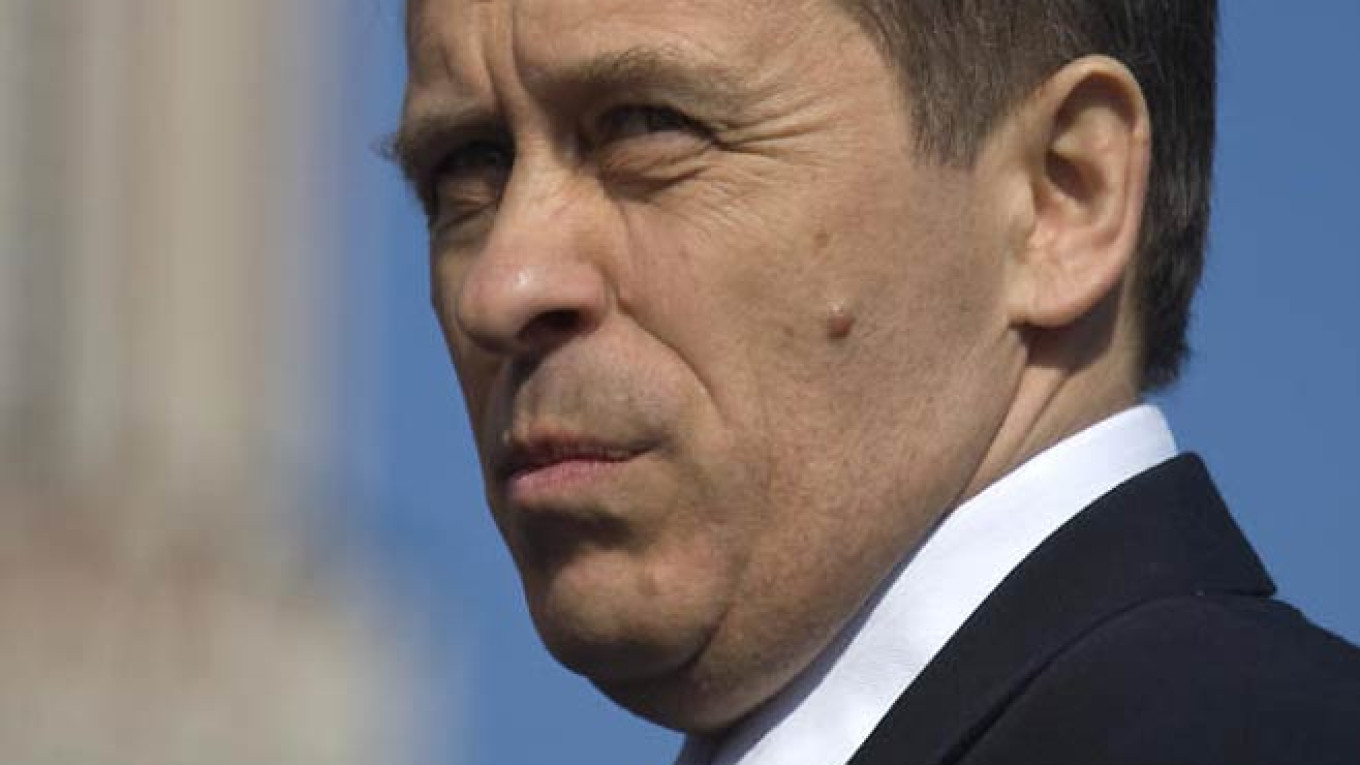Russia's Federal Security Service announced Tuesday that Doku Umarov, the leader of a Chechen terrorist organization and Russia's most wanted man, had been killed during a special operation in the first quarter of this year in a victory for Russia's fight against terrorism.
The announcement, made by Alexander Bortnikov, head of the Federal Security Service, or FSB, at a session of the National Antiterrorism Committee, or NAC, comes after months of speculation about Umarov's whereabouts. Numerous unconfirmed reports about the death of the Islamist militant, who claimed responsibility for deadly attacks on the Moscow metro in 2010 and the city's Domodedovo Airport in 2011, had circulated in Russian media in recent years.
In January, Chechen leader Ramzan Kadyrov said that Umarov, who headed the Caucasus Emirate terrorist group, was dead and that members of insurgency groups were looking for a replacement for him. Umarov's sympathizers released a similar statement in March, which the FSB did not confirm at the time. ?
At Tuesday's NAC session, Bortnikov also highlighted his organization's other recent successes, including anti-terrorism operations that he said had nearly halved the number of terrorist attacks in the country in comparison to the first quarter of 2013, Interfax reported.
Bortnikov said the FSB had conducted 33 anti-terrorism operations in the first quarter of this year during which 13 leaders and 65 active members of armed groups had been neutralized. According to Bortnikov, 250 kilograms of explosives, 79 improvised explosive devices and more than 500 weapons were seized during the operations, the news agency reported.
But the announcement of Umarov's long-awaited "neutralization" was tempered by reminders of lingering challenges in Russia's fight against terrorism.
At his meeting with the FSB on Monday, President Vladimir Putin painted a balanced picture of terrorism in Russia, conceding that the country still faces challenges despite its recent success in anti-terrorism operations.
"The situation is still difficult," Putin said. "The terrorist underground has suffered big losses but still has the potential to carry out attacks against civilians, as we saw to our great sorrow at the end of last year in Volgograd."
In late December 2013, two suicide bombings only one day apart shook the southern Russian city of Volgograd, killing 32 people and injuring nearly 100 others. The attacks followed the bombing of a Volgograd bus in October, which claimed the lives of seven people.
The frequency of terrorist attacks in Russia progressively increased between the collapse of the Soviet Union and 2010, ranging from 20 attacks in 1992 to more than 250 attacks in 2010, according to the University of Maryland's National Consortium for the Study of Terrorism and Responses to Terrorism.
While Putin praised the work of the security apparatus for having thwarted attacks on the Sochi Olympic Games and other large-scale events, he said that the FSB should continue to "concentrate all necessary resources" on counter-terrorism.
In July 2013, Umarov lifted a moratorium on his group's attacks on civilian targets, calling for the use of "maximum force" to prevent the Sochi Olympics from taking place.
Analysts who monitor Russian domestic security agree that Umarov's death is a positive development in Russian anti-terrorism operations but deny that it marks the country's decisive triumph over terrorism.
"The era of Doku Umarov and other Chechen terrorists who masked their activities behind separatism and national independence aspirations is coming to an end," Viktor Kulikov, director of the National Anti-Criminal and Anti-Terrorism Foundation think tank, said in a telephone interview.
"Terrorism has already begun to take a new direction in the country, one that is not linked to separatism. We need to attack the sources of terrorism, like corruption, which creates stark inequalities. The death of Umarov marks the beginning of a new era, of a new fight," he said.
Kulikov said that despite remaining challenges in Russia's fight against terrorism, Umarov's killing demonstrates that the country's anti-terrorism legislation and operations have been "effective."
Among the challenges the FSB still faces, Bortnikov warned that nearly 1,000 Russians are being trained by international terrorist organizations.
"Chances are that when these individuals return from abroad, they will be used by leaders of underground groups in Russia," Bortnikov said, Interfax reported.
According to the University of Maryland, the Caucasus Emirate that Umarov headed perpetrated 31 attacks that killed 140 people between 1992 and 2012.
The FSB has not disclosed details of Umarov's death and his body has not been recovered, according to an Interfax source.
"I do not think a big deal will be made about the body like with [Osama] bin Laden," said Ivan Kuznechik, former deputy head of the Russian bureau of an international anti-terrorism organization, in a telephone interview.
"Body or no body, Umarov is dead. That is what is most important."
Contact the author at g.tetraultfarber@imedia.ru
A Message from The Moscow Times:
Dear readers,
We are facing unprecedented challenges. Russia's Prosecutor General's Office has designated The Moscow Times as an "undesirable" organization, criminalizing our work and putting our staff at risk of prosecution. This follows our earlier unjust labeling as a "foreign agent."
These actions are direct attempts to silence independent journalism in Russia. The authorities claim our work "discredits the decisions of the Russian leadership." We see things differently: we strive to provide accurate, unbiased reporting on Russia.
We, the journalists of The Moscow Times, refuse to be silenced. But to continue our work, we need your help.
Your support, no matter how small, makes a world of difference. If you can, please support us monthly starting from just $2. It's quick to set up, and every contribution makes a significant impact.
By supporting The Moscow Times, you're defending open, independent journalism in the face of repression. Thank you for standing with us.
Remind me later.


